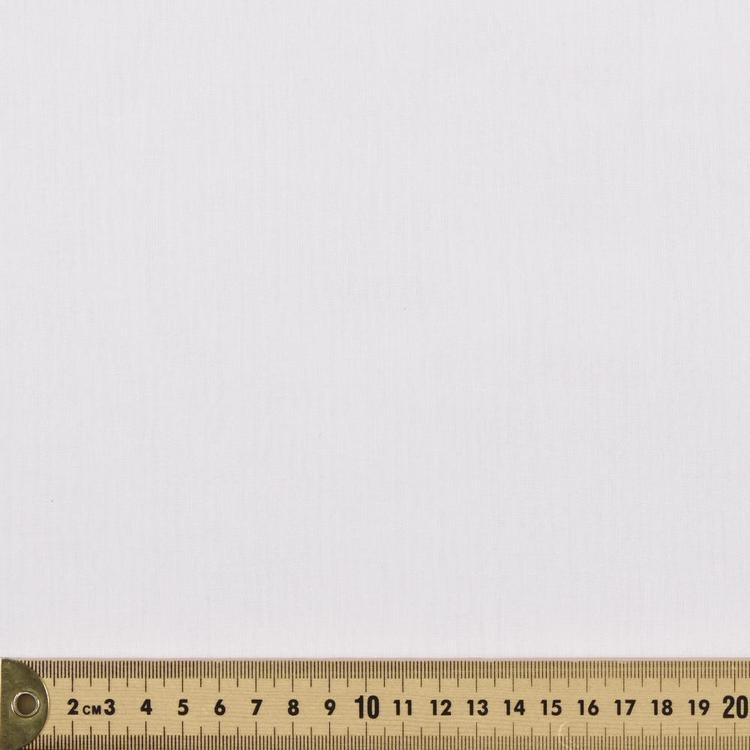 | ||
| Your browser is not supported. | ||
|
Please browse our site using any of the following options:
| ||
Lining & Interfacing
Reinforce clothes and fabrics with our wide selection of dress linings and interfacing fabrics here at Spotlight. Explore our sewing essentials today!
1 item found.
The Biggest Questions About Interfacing Answered
Interfacing is commonly used to add more stiffness and structure to a certain fabric, so many crafters will use this in their sewing projects. Still, despite its common occurrence, many crafters have some questions about interfacing and how it should be used. So, to answer your questions about interfacing, we have created a useful guide with frequently asked questions below.
When Should I Use Interfacing On A Sewing Project?
As we briefly mentioned in the introduction, interfacing is used to add more stiffness to a fabric, so crafters will use interfacing for projects such as shirt collars. Interfacing can also be used to add some strength to buttonholes or to give extra volume to a certain area of a garment.
There are various types of interfacing that can be used for crafting projects. Firstly, you can use interfacing that contains an adhesive and is transferred through ironing. Alternatively, there is also interfacing that can be sewn into place. If you are unsure which kind of interfacing will be best for your project, always refer to the recommendations in your sewing pattern.
How Do I Select Interfacing For My Sewing Project?
If you do not have the luxury of a pattern, then there are certain things you could consider when you choose interfacing. Below, we have listed the most important factors to take into account.
Before you look at weight or colour, the first thing you need to look at is the type of interfacing. As a general rule of thumb, you can usually choose between woven, non-woven, and knit interfacing. Each of these types of interfacing have their own properties and characteristics, which you should be familiar with before choosing.
When you choose a non-woven interfacing, you will have interfacing that does not contain a grain. Because of the absence of the grain, the non-woven interfacing is suitable for most sewing projects out there.
Anyone who prefers interfacing with a grain could consider woven interfacing instead. Of course, this does come with the added challenge that the interfacing must be cut in the same manner as your fabric. So, this type of interfacing is better for crafters who have a little more experience.
Finally, you could choose knit interfacing. As the name suggests, this type of interfacing is usually applied on projects made from a knit fabric. Much like the knit fabric itself, knit interfacing will have a certain amount of &ldquo,give&rdquo, and stretch.
Once you have selected the type of interfacing, you can determine the weight of your interfacing. Interfacing comes in anything from a light weight to heavy weight, so there are a couple of options you will have to consider. However, if you are unsure, always choose interfacing that is equal to your fabric's weight. You can also choose interfacing that is a little lighter, but not by much.
How Do I Remove Interfacing From My Iron?
When you use adhesive interfacing, it is not uncommon for some of that adhesive and the interfacing itself to get stuck to your iron. While more advanced crafters learn to avoid this, stuck interfacing can be the bane of beginners.
To remove interfacing from an iron, unplug your iron first. Let your iron cool down before you attempt to remove it. Once the iron has cooled down sufficiently, you should be able to peel it off by hand.
Is the interfacing a little more persistent? There are certain projects that can remove the adhesive residue on your iron. So, be sure to check Spotlight for adhesive removers that are gentle on your iron.
What Kind Of Interfacing Can I Obtain From Spotlight?
Spotlight provides everything you need in terms of interfacing, so you will be able to make a good selection at our store. In addition to interfacing, you can also count on Spotlight to provide you with a large range of sewing supplies and accessories.
Choosing Spotlight is easy for most crafters, as we provide some of the best prices in New Zealand. Crafting can sometimes be an investment, but it does not have to be like that thanks to the discount prices at Spotlight. Check out our catalogue today and uncover our amazing range of sewing supplies and accessories.







